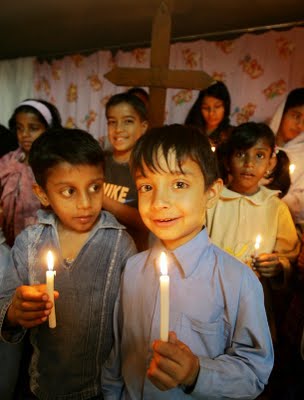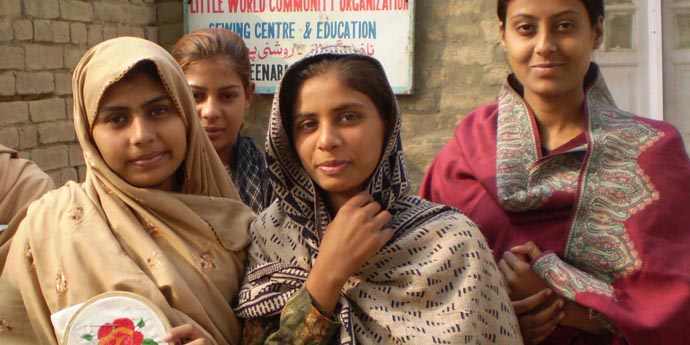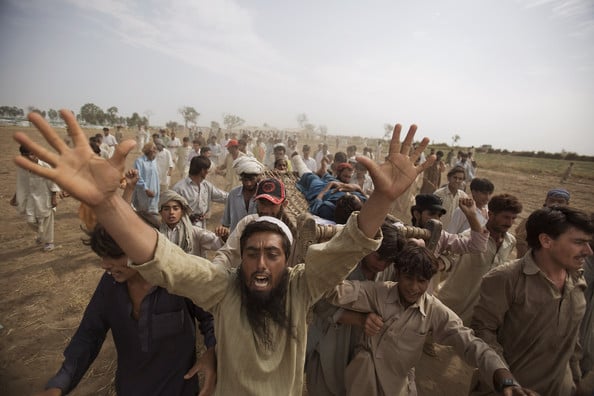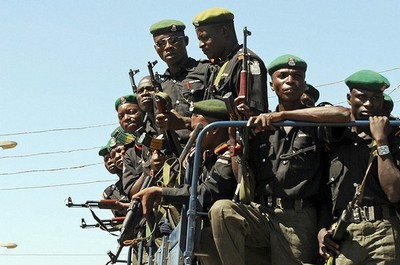
Pakistan’s notorious “blasphemy” laws are putting Christian children at risk.
Christians say they are having to carefully teach their kids diplomatic answers to protect them from accusations of blaspheming Islam, the Koran or Mohammed.
“If they write anything or misspell anything to do with the prophet Muhammad, they can be in serious danger,” one parent told International Christian Concern. “In fact, the other side of this is that they are made to answer questions saying what a wonderful man he was.”
Another sad side effect is that Christian kids in predominantly Muslim areas don’t have many friends to play with. Even a cricket game can be risky, she said — particularly since the blasphemy laws are being used to settle grudges.
Adults are equally fearful. Increasingly in property disputes, the matter of deeds and bills of sale are not brought before the court. Instead, landowners — particularly Christians — are accused of burning pages of the Koran or remarking flippantly about Mohammed.
“People in offices are silenced into submission,” said the parent, who asked not to be named because of the possibility of retribution. “The fear is creating aggression.”

A 30-year-old Pakistani woman who grew up in Lahore said her Christian parents taught her “safe” answers to keep from falling prey to accusations under the blasphemy statutes. As a child, when challenged to debate whether Mohammed is a prophet, she was taught to answer quietly “I am a Christian, I can only tell you about Him.”
Even back then, she said, before radical Islamists began influencing Pakistani society as they have in recent years, Christian schoolchildren were taught not to discuss religion.

“We knew never to get into religious discussions with others,” she said. “We had them at home – our parents would put us through the drill of asking us tough questions to see how we answered. Only now I realize that was practice for school.”
In this way, she was imbued with the fundamentals of the Christian faith and at the same time learned that she should discuss it only with her parents.
Although Christians must obey the Great Commission and proclaim their faith, Pakistani Christians are having to do by example — taking the Apostle Paul literally to witness “in word and in deed” — with an emphasis on deeds instead of words.
“Christians constantly face questions like, ‘What do you think of the Koran? Do you like it?’” she said. Another question used to bait Christians is “What do you think of Muhammad?”
One answer Christian children are taught is “As a Christian I have only read the Bible, I can’t read Arabic.”
“These questions used to be easier to answer,” she said. “We had formulas. But those are not working any more. We just tell children ‘Don’t talk about religion in school.’ This is shaky ground now.”

Conviction under Pakistan’s Section 295-C of the blasphemy law for derogatory comments about Muhammad is punishable by death, though life imprisonment is also possible. Curiously, accusers in blasphemy cases cannot repeat the alleged derogatory comments without risk of being accused of blasphemy themselves. Section 295-B makes willful desecration of the Quran or use of an extract in a derogatory manner punishable with life imprisonment. Section 295-A prohibits injuring or defiling places of worship and “acts intended to outrage religious feelings.” It is punishable by life imprisonment, which in Pakistan is interpreted as 25 years.

